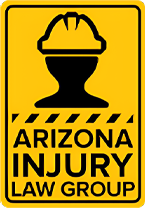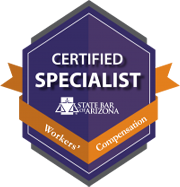Employer Parking Lots and the “Coming-and-Going” Rule When Unexplainable Accidents Happen

Jessica Wilson of Utah had parked her car at her place of work with Intercontinental Hotels Group (IHG) and on her way walking to the building’s entrance, she slipped and fell, suffering extensive injury to one of her feet. The damage was severe enough to cause her to have several surgeries along with amputation of her third toe.
Wilson filed for Utah’s workers’ compensation benefits, but her claim was denied by IHG and its insurance company, American Zurich Insurance (AZI). Wilson then appealed to Utah’s Labor Commission who overturned IHG and AZI’s denial and ordered the company and insurer to pay the benefits. The case made its way to the Supreme Court of the State of Utah, after which reviewing the facts, agreed with the Labor Commission’s decision, and ordered IHG and AZI to pay the benefits.
What is the Coming-and-Going Rule?
It is generally understood that one does not get compensation when going to work or when going home after leaving work. The was the argument that IHG used to deny the benefits. As the Labor Commission and Utah’s Supreme Court interpreted the case and facts, Wilson was already at work, having parked in the designated parking lot the company had set aside for all its employees. Therefore, she was at work when the accident happened.
It did not matter that there was no visible reason for why Wilson fell, such as bad weather, icy walkway, cracks in the pavement, or some other condition. Utah (like Arizona) is a no-fault state concerning accidents occurring at the workplace or while conducting one’s job offsite (transport, job-related errands, etc.).
IHG also argued that the company rented the parking lot space, including maintenance of the property, but the court responded that the parking lot was a company-designated employee parking lot, regardless of who owned it. As there were also specific parking areas for various employees (presumably the CEO, COO, Managers, etc.), then IHG had control over the parking lot.
Wilson would not have been in that parking lot unless the company told its employees that is where they should park. Once she had entered the parking lot, she was at work. The outcome of the case was that Wilson received her workers’ compensation benefits for temporary disability and medical bills.
ARS § 23-1021.01
Arizona law, ARS § 23-1021.01, gives a short overview of employees’ right to receive workers’ compensation or benefits for injuries caused by accidents while on the job. Each case must be reviewed, particularly when determining whether an employee was still conducting a work-related job or was on the workplace premises when the accident happened. Wilson would have received the same final judgment from the courts had she been working for an Arizona employer.
In another case, a worker had just completed delivery of work-related materials and was on her way home when she had an accident. The Arizona Court of Appeals in 2015, decided that Lisa Gurtler, who had just delivered her materials and who had an accident as she headed home, was not entitled to workers’ compensation. Her job had ended when the delivery was made.
From that point on, she was free to go home (or elsewhere) on any route she chose without further obligation to the completed job. If her accident had occurred on the way to make the delivery, then she would have been eligible for benefits, once she proved she was on a job-related delivery.
In the case of employee parking lots, it should be easy enough to view any accidents in the parking lot, so long as the employer has installed a suitable monitoring video cam system. While unlikely to change a verdict for the employee to that of the employer, it does verify that the employee did have an accident at the workplace and not somewhere else.
All employees should ask for those recordings if they find themselves in the same position as Wilson. If the employee is alone in the parking lot, it is advisable to call a supervisor to come down and help the employee to a medical station or to call an ambulance, if needed.
If you need help with your workers’ compensation claim, call us at once for a consultation. 602-346-9009.
Get Help Today
Call Immediately For A Free, No Obligation Consultation And Let Us Help You Put Your Life Back On Track. Let Us Help You
Regain Normalcy And Stability Again. We Want To Help You Get The Benefits You Need And Deserve!


